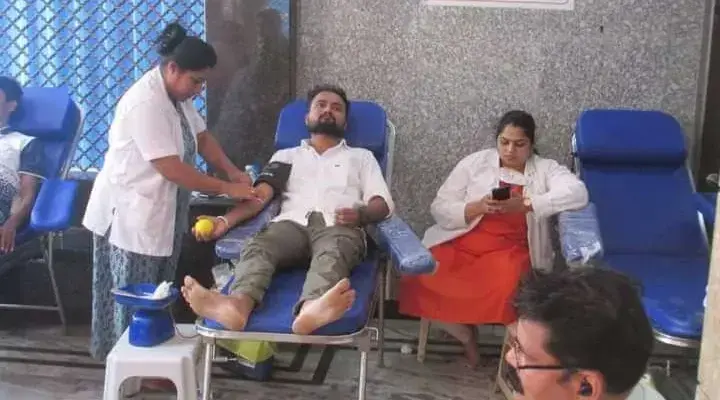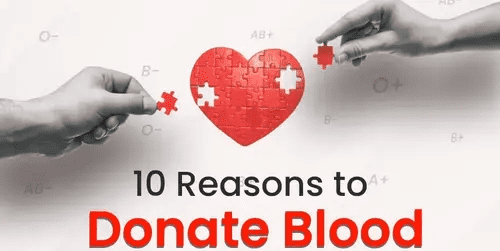
Giving blood is a selfless act with the potential to save lives
Giving blood is a selfless act with the potential to save lives and have a significant positive impact on local communities all over the world. Numerous thousands of individuals rely on blood transfusions every day for emergency situations, surgeries, and medical treatments. Unfortunately, the demand for blood frequently outpaces the supply, creating catastrophic conditions and severe shortages. However, there is still hope thanks to voluntary blood donation, a little but impactful act that can significantly improve the lives of individuals in need.
The Importance of Voluntary Blood Donation:
Blood donation that is done voluntarily is blood that is given without being paid for it or being forced to. It depends on people’s generosity and selflessness because they understand the critical relevance of their participation. Volunteer donors, in contrast to paid donors, are only motivated by the desire to aid others and enhance the health and well-being of their fellow humans.
The reduced risk of infection transmission is one of the main benefits of voluntary blood donation. Blood supplies are safer when donors are not motivated by financial gain because they are more likely to follow strict health and safety regulations. As a result, this helps to stop the spread of pathogens like HIV, hepatitis, and others through blood transfusions.
Saving Lives, One Donation at a Time:
The impact of voluntary blood donation is immeasurable. A single donation can save up to three lives, making it an invaluable gift to patients suffering from various medical conditions. Individuals with life-threatening illnesses, victims of accidents, and those undergoing complex surgeries often rely on the selfless act of voluntary donors to survive.
Think about Lisa, a young woman who was identified as having a rare blood condition. She needs repeated blood transfusions to stay alive. Lisa was able to obtain the blood she needed because of the generosity of volunteer blood donors, providing her with the opportunity to live a full and fruitful life. Her experience is only one of countless stories that demonstrate the significant positive effects that voluntarily giving blood may have on a person’s life.
Fostering a Stronger, Healthier Community:
Beyond the direct benefit to the donor, voluntary blood donation is essential for creating healthy communities. As more people carry out this selfless deed, society as a whole grows more united and compassionate. As a result, there is a culture of giving that encourages individuals to support one another in times of need.
Additionally, voluntary blood donation promotes public awareness of healthcare issues and the value of preserving a steady blood supply. Communities gain insight into blood-related issues, including the significance of regular donations and the high demand for specific blood types. Such knowledge aids in creating a healthcare system that is more adaptable and durable.
Overcoming Challenges:
Despite the advantages of voluntary blood donation, some obstacles need to be overcome to guarantee a reliable and ample blood supply. The myth and fear around blood donation are one of the biggest barriers. Some people are concerned about the discomfort or possible risks, while others think their medical issues prevent them from participating. Promoting blood donation and dispelling common misconceptions are essential to enticing more people to take part.
Conclusion:
Blood donation is a selfless act of compassion with the power to change people’s lives and communities. Giving blood can help save many lives and build a more robust, healthful society. By boosting awareness and comprehension of the importance of voluntary donations, we ensure a steady and safe blood supply for those in need.





